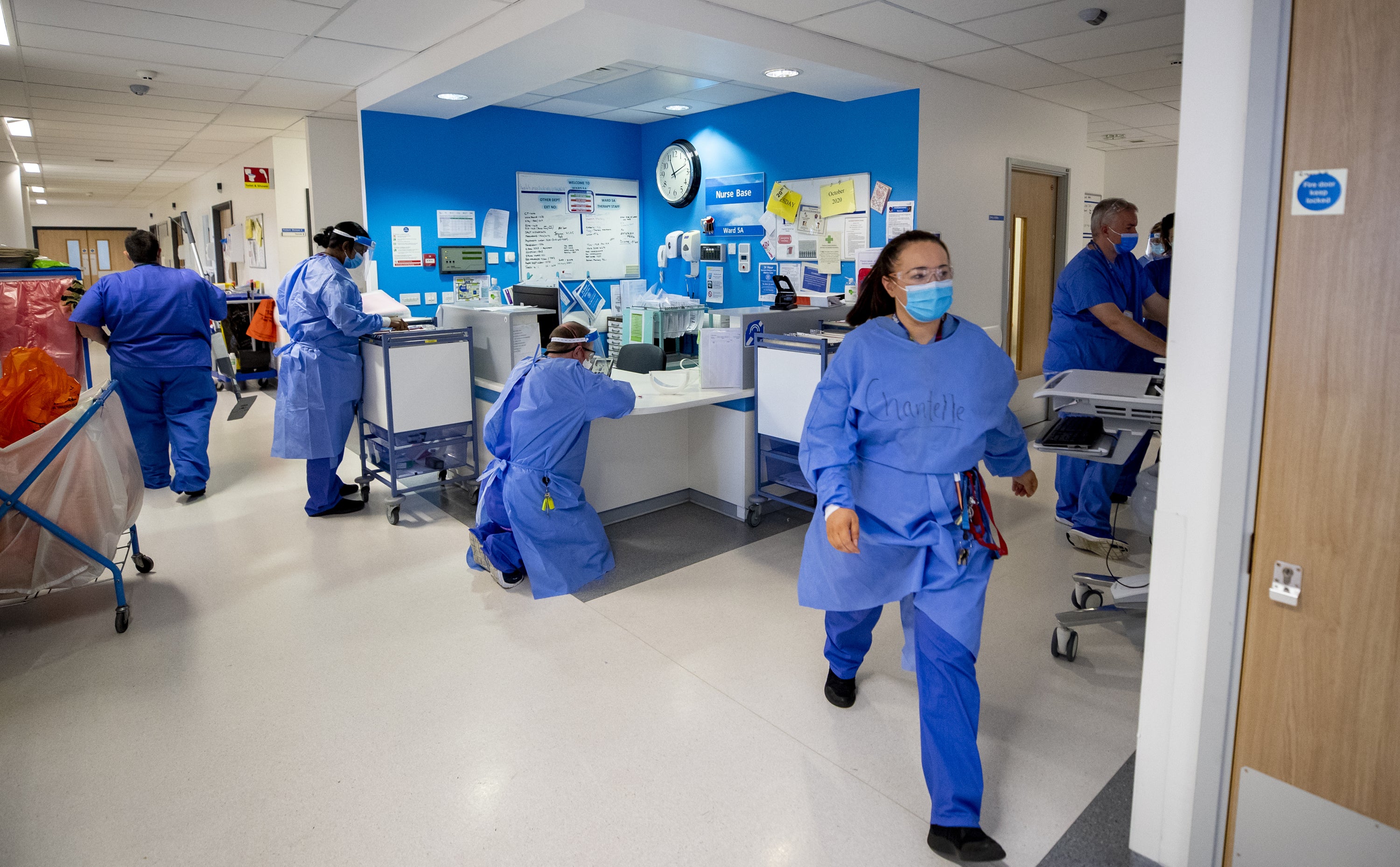One in four waiting over 28 days for rescheduled operations as backlog grows
The drop in two-year waits is ‘faint glimmer of light’ among otherwise ‘dire statistics’, commentators said.

Your support helps us to tell the story
From reproductive rights to climate change to Big Tech, The Independent is on the ground when the story is developing. Whether it's investigating the financials of Elon Musk's pro-Trump PAC or producing our latest documentary, 'The A Word', which shines a light on the American women fighting for reproductive rights, we know how important it is to parse out the facts from the messaging.
At such a critical moment in US history, we need reporters on the ground. Your donation allows us to keep sending journalists to speak to both sides of the story.
The Independent is trusted by Americans across the entire political spectrum. And unlike many other quality news outlets, we choose not to lock Americans out of our reporting and analysis with paywalls. We believe quality journalism should be available to everyone, paid for by those who can afford it.
Your support makes all the difference.Around one in four hospital patients in England who have their operation cancelled have still not been treated 28 days later, new figures show.
It comes as the total number of people waiting to start routine hospital treatment has hit a new record high – though waits of more than two years are continuing to fall.
The NHS aims to offer all people who have routine surgery cancelled at the last minute for non-clinical reasons “another binding date within 28 days”.
But of the 17,579 patients who had their operations cancelled between April and June, 4,145 (23.6%) had not been seen at least four weeks later, according to NHS England.
The proportion is broadly unchanged from the first three months of the year (23.0%), but is up sharply from before the Covid-19 pandemic.
Just 9.1% of patients who had operations cancelled in October to December 2019 were still waiting for treatment 28 days later.
Data on cancellations was not collected between January 2020 and September 2021 “due to Covid-19 and the need to release capacity across the NHS”, NHS England said.
The latest figures reflect the pressure hospitals are under as they continue to deal with a growing backlog of treatment.
Some 6.7 million people were waiting to start treatment at the end of June, up from 6.6 million in May and the highest since records began in August 2007.
The number of people waiting more than a year for treatment is also continuing to rise and stood at 355,774 in June, up from 331,623 the previous month.
But the figure for people waiting more than two years has dropped sharply after peaking at 23,281 in February, standing at 3,861 in June.
The Government and NHS England set the ambition to eliminate all waits of more than two years, except when it is the patient’s choice, by July this year.
Separate provisional figures published by NHS England earlier this week suggested the number of people waiting more than two years stood at 2,777 as of July 31.
NHS national medical director Professor Sir Stephen Powis said that while the total backlog “will continue to increase for some time”, the drop in two-year waits means “we are turning a corner in tackling Covid’s impact on elective care”.
Richard Murray, chief executive of health charity The King’s Fund, described the fall in people waiting over two years as a “faint glimmer of light” among otherwise “dire statistics”.
“Thanks to the efforts of NHS staff, two-year waits for planned NHS care have been virtually eradicated and efforts will now be focused on hitting the target of no patient waiting more than 18 months for care,” he said.
“However this next phase will be much tougher, with just nine months to reduce the number of people waiting a year-and-a-half from 53,911 down to zero.”
The target for clearing the backlog of patients waiting at least 18 months for treatment is April 2023, while the target for year-long waits is March 2025.
Max Warner, of the independent research body the Institute for Fiscal Studies, said that while the drop in two-year waits was “encouraging”, in other areas the news “is much less positive”.
“The number of people waiting more than a year, and more than 18 weeks, is continuing to rise,” he said.
“Fewer people are joining the waiting list than pre-pandemic, and despite GPs delivering many more appointments, there are still fewer GP referrals than pre-pandemic.
“This raises the worrying prospect that many people are currently living with health conditions that they would previously have been treated for.”